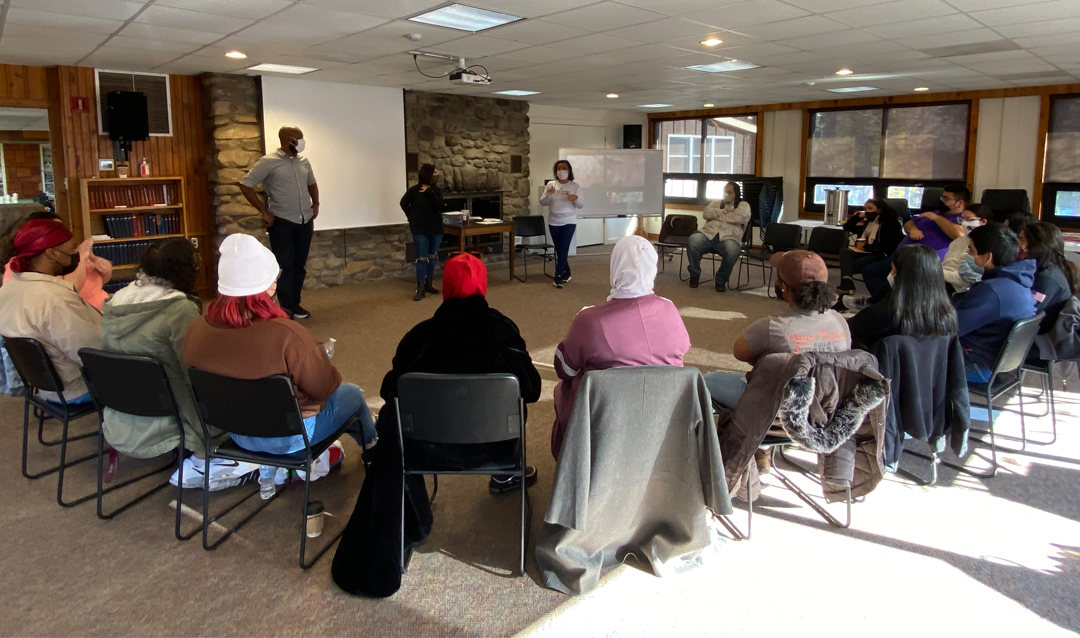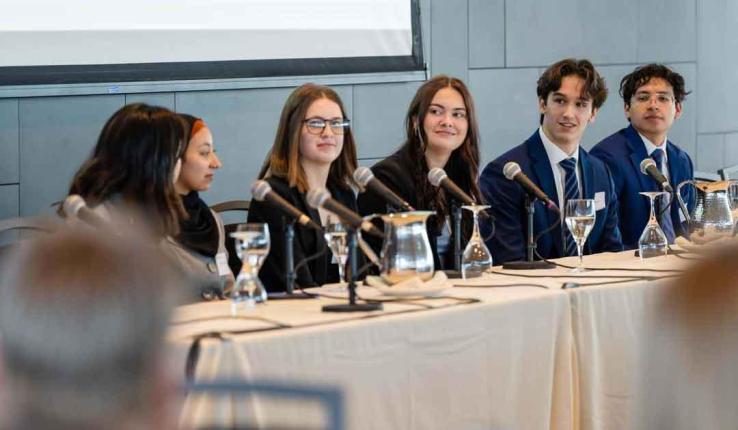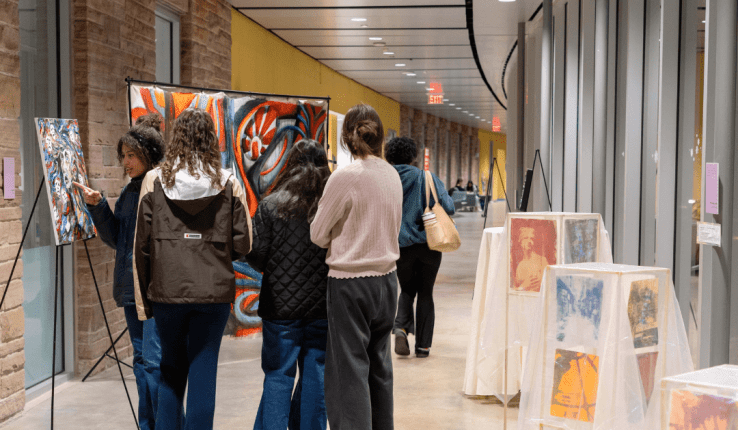The Office of Multicultural Affairs (OMA) recently hosted its first BIPOC (Black, Indigenous, People of Color) retreat at Spruce Lake in the Poconos, providing a safe space for students to talk as a community.
“We really wanted to create a space where students who identify as BIPOC could find each other, build relationships (and) find that community, but really be in a space where they didn’t have to feel the need to explain their identity,” said Clara Buie, associate director of OMA.
She said about 14 students attended, and there was a range from first-year to graduate students, along with staff members and guest speakers.
Guest speakers included Donald Outing, vice president for equity and community; Mark Wilson, the executive director of Zoellner Arts Center; counseling services and Frederick Coleman, the current youngest member of the Board of Trustees and first Black class president at Lehigh.
Buie said about 40 people had registered for the retreat, but space was limited.
She said some of the other activities included making S’mores, hiking, game night and arts and crafts.
Hareem Khattak ’22G, an international student from Pakistan who attended the retreat, said the best part was having the understanding of being in a safe space and being able to talk about any issue. She said she also learned there are many things a person of color has to unlearn.
“Not every person-of-color experiences are the same. It’s so different because usually when you're an international student, your idea of a person of color is mostly related to Black experiences,” Khattak said. “But learning how even the Black experience in itself is so vastly different...is different for students coming from Africa and African American students in itself. What is the Latinx experience like? That idea of not every person of color experiences the same, but have a lot of commonalities, was the biggest learning for me.”
She said the group was diverse and OMA has been doing a great job at promoting and talking about diversity, equity and inclusion issues. However, she said more work can be done.
Khattak said the retreat was essentially to have a group where people come from all different cultures, religions and socio-economic backgrounds and find the commonalities in their shared experiences. She reiterated that she would recommend the program to anyone on campus.
Princess Scott ’22G, another participant and RISE Innovative Associate at the Baker Institute, said she valued the various presenters and the small group sessions in which participants talked about their Lehigh experiences. She said she also learned about different conflict resolution techniques and ways to attack a conflict in a different perspective.
“I think smaller retreats allow [us to] foster a more close-knit community where you could talk more to other students or faculty in a smaller and safe environment,” Scott said. “Sometimes larger retreats where there are a hundred or so students can be hard for first-year students or even transfer students who are trying to find their niche within the Lehigh community. Things on a smaller scale like this [are] definitely beneficial.”
Carolina Hernandez, the director of the Community Service Office and one of the staff participants, said this was one of her favorite programs she participated in since she’s been at Lehigh.
She said it was great spending quality time with students off campus in a beautiful setting where they got to be authentic, relaxed and learn together. She thought it was a unique opportunity to have a space where BIPOC individuals are all together and having a shared experience.
“It was just a really transformative experience, and I was proud to be part of the first one and look forward to this continuing to grow and opportunities like this to come forward in the future,” Hernandez said.
Wilson said it was important to connect with students as a person of color and as someone who is in a leadership position at Lehigh. He said he also enjoyed connecting with other staff members.
“I just wanted them to understand how each of them are connected to a community and how they can rely on each other to build the community, but they want to see where we are and to visualize where we want to go,” Wilson said.
Buie said the most important part of the weekend was how everyone came together, their openness, the shared experiences and participants allowing themselves to be a bit vulnerable.
She said OMA hopes to bring this back on a more annual basis, but needs more budgetary support to increase numbers and the amount of people that can attend.
Buie said the program is one of the biggest steps Lehigh can take to become more inclusive.
“We really wanted to find a space that was safe, that was brave (and) that we could be vulnerable in, and that doesn’t always feel like that on our campus, so we’re hoping that conversations like these, these type of group retreats, will allow us to be able to think about doing it on campus at some point,” she said.
Story by Andrew Isaacson ’22





